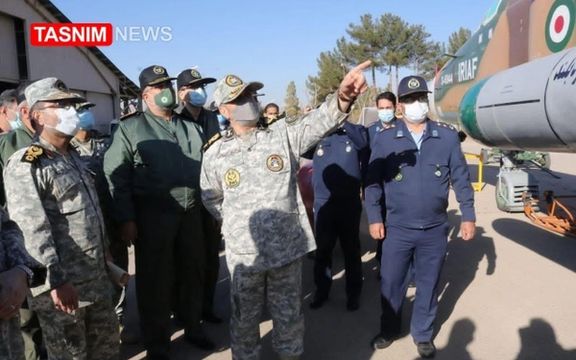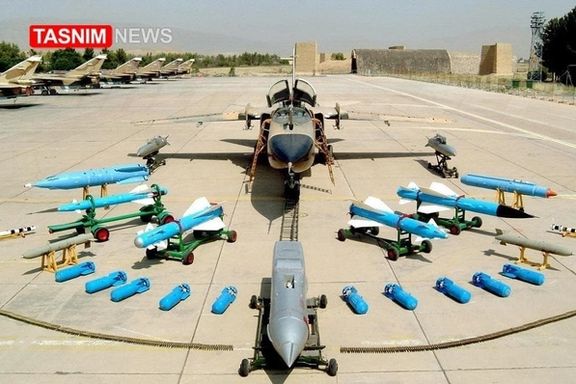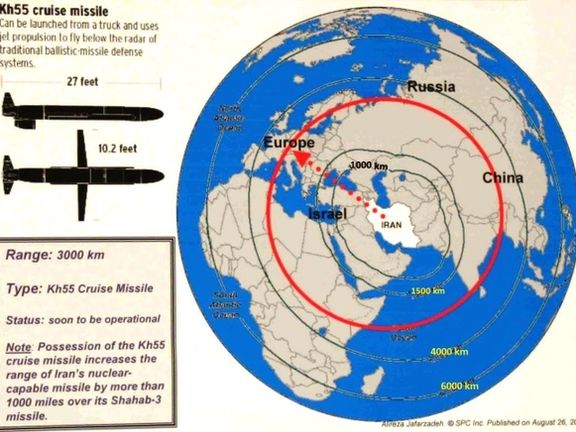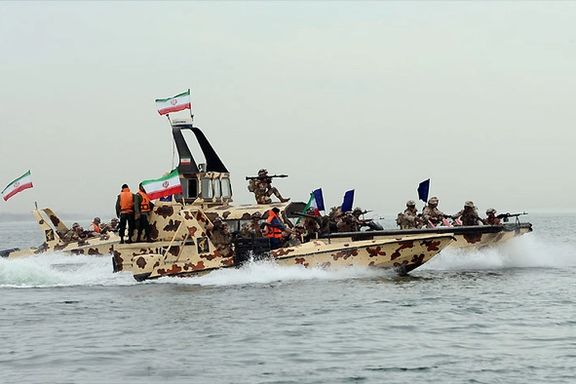Iranian Hackers Try To Exploit A New Cyber Flaw Against Israel

A dangerous Iranian state-sponsored hackers’ group has exploited a new cybersecurity flaw, reportedly targeting Israeli entities and potentially others.

A dangerous Iranian state-sponsored hackers’ group has exploited a new cybersecurity flaw, reportedly targeting Israeli entities and potentially others.
The hackers have tried to exploit a flaw in the commonly used Java-based logging tool Apache Log4j. The flaw has been fixed but hackers might have already established foothold in some networks.
The Israeli cybersecurity firm Check Point has said the Iranian group involved that tried to attack Israeli entities is the familiar Charming Kitten or APT35. “Check Point has blocked these attacks, as we witnessed communications between a server used by this group and the targets in Israel,” the firm announced.
The US Federal Bureau of Investigation, FBI, also issued a guideline for companies to report suspected malicious activities on their networks related to the latest threat dubbed the Log4j vulnerability.
A cybersecurity expert, John Hultquist, said that Iranian state hackers are particularly aggressive in exploiting the latest flaw and want to use it in ransomware operations, not so much for financial gain but to cause widespread disruption.
Iran’s intelligence organs, particularly the Revolutionary Guard operate one of the world’s most dangerous cyber-threat state operations and APT35 is thought to be linked to this network.

Following weeks of reports of Israeli preparations for attacking Iran's nuclear installations, the Tehran Times warned Wednesday of a strong Iranian response.
In an article headlined "Just One Wrong Move," the English-language newspaper splashed on its front page a map of purported missile targets in Israel. "An intensification of the Israeli military threats against Iran seems to suggest that the Zionist regime has forgotten that Iran is more than capable of hitting them from anywhere," the state-owned newspaper observed.
Tehran Times responded specifically to a Washington Post report, picked up by Israel's Yedioth Ahronot Tuesday, that Israel’s June 8 air strike on Syria had been “a direct message” to Iran. Yedioth Ahronot claimed Israel was now demanding that the US seek a complete end to Iran's ballistic missile capacity.
Tehran Times quoted Major General Mohammad Bagheri, Chief of Staff of Iran’s armed forces, that Iran did not underestimate the threat. "At the strategic level, we do not intend to strike anyone,” he said, “but at the operational and tactical level we are ready for a decisive response, and a quick and tough offensive against the enemy.”

The article concluded with a quotation from a 2013 speech by Iran’s Supreme Leader Ali Khamenei. "They are threatening to strike militarily, but I think they know it, and if they do not know it, they must know that if they make a mistake, the Islamic Republic will destroy Tel Aviv and Haifa.”
IRGC-affiliated Tasnim news agency Wednesday ran an article on equipping Iranian fighter jets with cruise missiles, thought to be the Hoveizeh, allegedly with a 1500km range. Headlined "Sharp Blade of Iran's Fencer [Sukhois] on Israel's Neck,” the piece rehashed a plan announced in 2018 to fit ageing Russian-made Sukhoi-22 and Sukhoi-24 jets with Cruise missiles.
There is no independent confirmation of Iran's claim about fitting the warplanes with a Russian-copy cruise missile. The announcement could have been made amid nuclear talks and Israeli threats.
This time Tasnim splashed a map showing the possible range of Iran's airplane-launched cruise missiles, all the way to Europe.

Israeli media say Defense Minister Benny Gantz on Thursday presented a timeline for attacking Iran to American officials. According to the Jerusalem Post, Gantz met no opposition. Israeli media have claimed planning is intensifying, as talks in Vienna continue with the aim of reviving Iran’s 2015 nuclear deal, with the aim of decisively curbing not just Tehran's atomic program but its missile defense.
The New York Times Saturday claimed Israel had consulted with the US on two previous occasions before launching attacks, the attack on June 23 against a centrifuge-parts manufacturing facility near Karaj and an explosion on September 26 at a Revolutionary Guards facility to the west of Tehran that killed two.
Iran subsequently restricted access to the Karaj site by the International Atomic Energy Agency (IAEA), as it reviewed security. The IAEA announced Wednesday Tehran had agreed to allow agency inspectors to service monitoring equipment at the site.

Iran has called on Gulf countries Wednesday to avoid repetitive accusations, a day after a Gulf Arab summit accused Tehran of stalling regional talks.
"We call on the few countries who express unconstructive views in the name of the Gulf Cooperation Council to reconsider their approach to regional issues by replacing repeated accusations with cooperation," Foreign Ministry Spokesman Saeed Khatibzadeh said.
The Gulf Arab summit held on Tuesday in Saudi Arabia urged Iran to take concrete steps to ease regional tensions while reiterating a call to include the region in talks between global powers and Tehran aimed at salvaging a 2015 nuclear agreement.
Saudi Crown Prince Mohammed bin Salman speaking at the summit said Iran’s nuclear and missile programs should be handled "seriously and effectively."
"We had believed that there would be a new attitude from the (GCC) after recent diplomatic actions between Iran and Gulf Arab states," Khatibzadeh said, adding: "Iran will not accept any interference in its defense capabilities, missile and peaceful nuclear programs."
Saudi Arabia's crown prince told the summit that the nuclear and missile programs of Iran, Riyadh's longstanding regional adversary, should be handled "seriously and effectively".
With reporting by Reuters

The US Navy announced Wednesday it tested a laser weapon and destroyed a floating target in the Mideast.
The system that could be used to counter bomb-laden drone boats deployed by Yemen's Houthi rebels in the Red Sea. Another ever-present threat is armed speed boats deployed by Iran’s Revolutionary Guard that have often menaced US Navy vessels.
The test Tuesday saw the USS Portland test-fire its Laser Weapon System Demonstrator at the target in the Gulf of Aden.
The Navy's Mideast-based 5th Fleet described the laser as having "successfully engaged" the target in a statement.
Previously, the Portland used the laser to bring down a flying drone in May 2020.
The Houthis have deployed drone boats into these waters, which can be piloted remotely and sent up to a target before detonating.
These boats are suspected of being built with Iran's help.
Emirati officials in 2018 showed off footage they described as coming from a drone boat computer that had Iranians building components for the boat's guidance system, with a hat visible in the background of one picture bearing the symbol of Iran's hardline Revolutionary Guard.
Iran has denied arming the Houthis, though United Nations experts, independent analysts and Western nations point to evidence showing Tehran's link to the weapons.
Report by AP

Police in Iran has once again resorted to arrests and intimidation to control the fall of the national currency, the rial in the local exchange market.
Police officials on Wednesday announced the arrests of 42 money exchangers and closure of 20 currency exchange outlets in Tehran accusing them of manipulating the market. The police also summoned managers of 20 websites and social media apps and warned them about exchange rates.
The rial has fallen to more then 300,000 against the US dollar, as negotiations over Iran’s nuclear program in Vienna are stalled and the economic outlook for the country seems bleak. The rial has fallen nearly tenfold since the end of 2017, when it became likely that the United States would abandon the 2015 nuclear agreement and impose sanctions.
Iran’s police and courts have arrested and prosecuted tens of people since 2018 on charges of boosting the value of the dollar or the price of gold, while the fall of the rial is the result of Iran’s economic crisis.
Last week also the Intelligence Ministry arrested five people and closed 841 bank accounts it said were involved in “illegal” currency and futures trade.

A top Iranian military official has dismissed a proposed bill at US Congress to strengthen measures against Tehran’s growing drone program as ineffective.
General Rasul Sanairad, the political deputy to the chief commander of Iranian armed forces told Mehr news agency on Wednesday that all previous sanctions on Iran have not worked and the Islamic Republic has been able to make substantial progress in developing weapons systems.
A bi-partisan group of lawmakers in the US House of Representatives presented a bill on December 1 to restrict proliferation of Iran's military drones. The lawmakers behind the proposed legislation, the Stop Iranian Drones Act (SIDA), say it clarifies that US sanctions on Iran’s conventional weapons program under CAATSA (The Countering America’s Adversaries Through Sanctions Act) include the supply, sale or transfer to or from Iran of drones.
Sanairad who represents of Supreme Leader Ali Khamenei insisted that Iran’s weapons are not a threat to neighboring countries. Recent reports have said that Israel and others are concerned over the fast-growing capabilities of Iranian military drones, in addition to its ballistic missiles.
Sanairad went on to accuse Israel of endangering security in the region and threatening safety of navigation. He also questioned the US military’s “illogical” presence in the region.